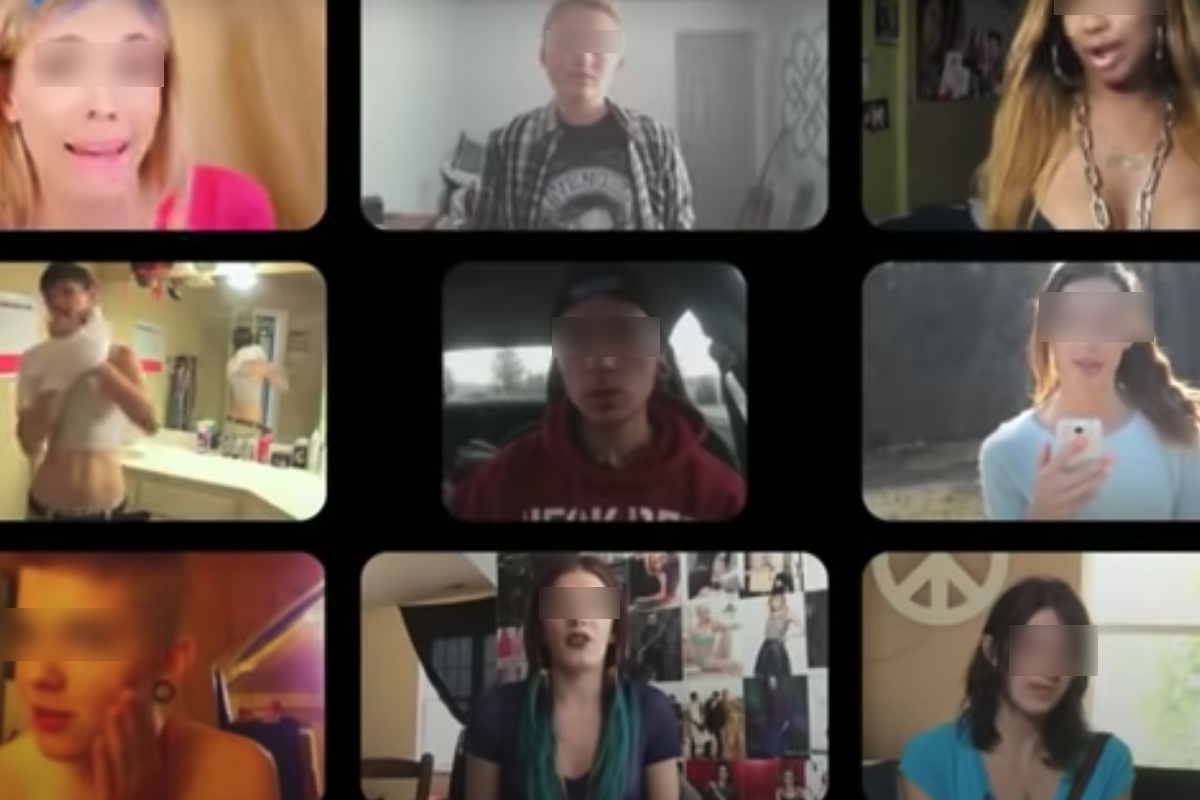Activism
Gender Activists Are Trying to Cancel My Book. Why is Silicon Valley Helping Them?
This is what censorship looks like in 21st-century America.

The day after I tweeted about the ongoing attempts to block sales of my book, Irreversible Damage: The Transgender Craze Seducing Our Daughters, I was stuck on the phone with my parents’ real estate agent. “How’s your book going?” she wanted to know. “Is there a lot of controversy?”
I know it’s fashionable these days to claim to be an introvert—something to do with an unwarranted assumption of depth, maybe—but I actually am an introvert. Small talk exhausts me, not because I believe it’s beneath me, but because it feels like being handed a socket wrench. I have no idea what to do with it.
“Well, you had to expect that, right?” she added casually. “When you write a book like that, that’s what you’re expecting.”
This is, more or less, most people’s reaction to the efforts to suppress my book. It isn’t that they agree with censorship per se. But you also can’t go setting fires without expecting Big Tech’s cops to shut them down. “If you’re going to talk about the trans thing, I mean, what did you expect?” I think the agent may have said those very words.
Except that I didn’t write about “the trans thing.” I wrote specifically about the sudden, severe spike in transgender identification among adolescent girls. I fully support medical transition for mature adults. And I have no desire to be a provocateur. (I dislike pointless provocation, in part because I think provocateurs often have a good argument—one they’re too lazy or inept to make). Nor do I have any prurient interest in others’ social lives.
What I aim to do, as a journalist, is to investigate cultural phenomena, and here was one worth investigating: Between 2016 and 2017, the number of females seeking gender surgery quadrupled in the United States. Thousands of teen girls across the Western world are not only self-diagnosing with a real dysphoric condition they likely do not have; in many cases, they are obtaining hormones and surgeries following the most cursory diagnostic processes. Schoolteachers, therapists, doctors, surgeons, and medical-accreditation organizations are all rubber-stamping these transitions, often out of fear that doing otherwise will be reported as a sign of “transphobia”—despite growing evidence that most young people who present as trans will eventually desist, and so these interventions will do more harm than good.
The notion that this sudden wave of transitioning among teens is a worrying, ideologically driven phenomenon is hardly a fringe view. Indeed, outside of Twitter, Reddit, Tumblr, and college campuses, it is a view held by a majority of Americans. There is nothing hateful in suggesting that most teenagers are not in a good position to approve irreversible alterations to their bodies, particularly if they are suffering from trauma, OCD, depression, or any of the other mental-health problems that are comorbid with expressions of dysphoria. And yet, here we are.
The efforts to block my reporting have been legion, starting with staff threats at a publishing house, which quickly reversed its original intention to publish my book. Once I obtained a stalwart publisher, Regnery, Amazon refused to allow that company’s sales team to sponsor ads on its site. (Amazon allows sponsored ads for books that uncritically celebrate medical transition for teenagers).

Because the book tackles an interesting phenomenon, a number of established journalists wanted to review it. The issue of trans-identification has seemed to come out of nowhere with Gen Z, the generation begun in 1995 whose large-scale mental-health crisis already has us so on edge. And the issue has created surprising bedfellows. Religious conservatives are concerned about the trend—but so are lesbians, who look upon the shocking numbers of teen girls transitioning with abject alarm. Many suspect that all this transitioning of girls is effectively euthanizing a generation of young lesbians.
In any case, every major newspaper and legacy magazine summarily turned interested journalists down. Whether they would have reviewed my book favorably or unfavorably, I have no idea—and it doesn’t matter. Kirkus, which reviews 10,000 titles per year, including self-published and obscure works—pretended my book didn’t exist. Its editors, too busy heaping praise on the Trans Teen Survival Guide, When Aiden Became a Brother, Jack (Not Jackie), Rethinking Normal, and of course, Beyond Magenta: Transgender Teens Speak Out.
Alternative media rushed in where legacy media feared to go. Joe Rogan hosted me on his show, and for two hours, we explored why a growing number of researchers believe social contagion is at play when clusters of girls suddenly announce, as if as one, that they are boys. Gender dysphoria has always existed, but until recently, afflicted males almost exclusively. While gender dysphoria has always been vanishingly rare among females, social contagion has not. These are the same high-anxiety, depressive (mostly white) girls who, in previous decades, fell prey to anorexia and bulimia or multiple personality disorder. Now it’s gender dysphoria, sometimes along with some or all of those other conditions. Parents are being presented with the seductive idea of transition as a utopian cure-all.
After the podcast aired, I was overwhelmed with messages from parents—and even transgender adults—who reached out to thank me for the episode. But at Spotify, which now hosts Rogan’s podcasts, employees threw a fit. They threatened to walk out over the interview, calling it transphobic, and demanding that it be deleted from the platform. Both Rogan and I were also called transphobes by Media Matters and Men’s Health. Spotify staff reportedly held 10 separate meetings in an attempt to mollify activist-employees who demanded an editorial veto.
To its credit, Spotify has not yet removed the episode. But the controversy delivered a warning shot to other media companies: Unless you want trouble, do not challenge the narrative of unquestioning “affirmation” for every child who claims to be trans—no matter the age, context, or lack of responsible medical oversight provided to the family.
Largely thanks to the Rogan podcast, word about my book’s thesis spread to parents all over the world, who’d either kept their mouth shut, or had been gaslit as transphobes when they expressed objections to the advice they were getting from activists. Many had quietly arrived at the common-sense explanation I offer—namely, that most of these teen girls were never trans in the first place. The parents’ pain and sadness—the natural result of caring for a child who believes herself to be psychologically alienated from her own body, and headed toward medical self-harm—was compounded by the claims that their parental concern was a source of further damage, perhaps even leading to suicide.
Sean Scott, a member of the National Association of Science Writers (NASW), heard of my book in the fall, and shared what he knew with other science writers. He noted that Nature Communications had published a study “to investigate whether autistic traits were elevated in transgender and gender-diverse individuals.” (To no one’s surprise, they are: Autistic children develop all kinds of strongly expressed fixations about the world they perceive.) Then he wrote: “This, along with [Wall Street Journal] columnist [Abigail Shrier’s] recent book on the onset of transgenderism amongst young girls… should hopefully shed some overdue light on a very sensitive, politically charged topic that potentially carries lifelong medical consequences.” Sound like hate speech? I didn’t think so.
I spoke to Scott. He hadn’t even read Irreversible Damage—and had no opinion about its merit. He merely found the topic interesting, and hoped that my book would “shed light”—hardly a radical posture for science journalists. For this thoughtcrime, he was kicked off the group’s discussion forum.

The NASW issued this statement to members of their NASW-Talk group: “The NASW Board rejects the suggestions propagated below regarding research on the health and well-being of trans or gender-nonconforming children. We view the statements that this individual made as harmful, whether or not that was their intent. Cloaking anti-trans statements in purported concern for children by implying that children who transition socially or medically are likely to regret such decisions is a well-known tactic known as ‘concern trolling.’ Per the discretion afforded in Discussion Group Policies, we have removed the person from this discussion group.”
Bear in mind, the NASW is not a kindergarten. This is a group of adult journalists ostensibly committed to communicating scientific ideas to the public. But at least this cleared up the mystery as to why nobody who covered science for the legacy media was writing about my book or the scientific study on which it was based—namely, a 2018 paper by Brown University public health researcher Lisa Littman, which hypothesized that the sudden uptick in transgender identification among teen girls might be a maladaptive coping mechanism similar to an eating disorder.

Parents who’ve lived through this social contagion—who’d seen it strike daughters who’d never before exhibited signs of gender dysphoria in childhood—became so alarmed at suppression efforts that they dug into their own pockets to promote my work. That’s how I became one of the few authors in the world to have her own billboard in West Hollywood. Other parents started an account on GoFundMe, a website that facilitates fundraising efforts for all sorts of causes. GoFundMe closed the account. The parents started another campaign. GoFundMe closed that account, too. If a mentally fragile 18-year-old wants help removing her healthy breasts, GoFundMe will happily facilitate it. (The site currently hosts over 35,000 campaigns to pay for female “top surgery” alone.) But if you believe your daughter has become caught up in a movement that will leave her angry, regretful, maimed, and sterile, you’re out of luck.
I want to be clear about something. I don’t believe that I’ve been harmed by these suppression efforts. I am not entitled to book reviews by any media outlet. I sold plenty of books without Amazon’s “sponsored ads.” Joe Rogan (and Megyn Kelly, who also had me on) have much larger platforms than the outlets that pretended this book doesn’t exist. And while this topic has become a fascination of mine, I am no activist. I will pursue other subjects and write other books.
But there is a victim here—the public. A network of activists and their journalistic enablers have largely succeeded in suppressing a real discussion of the over-diagnosis of gender dysphoria among vulnerable girls. As you read this, there are parents everywhere being lectured to by authority figures about how they have to affirm their daughter’s sudden interest in becoming a boy—no questions asked. From Amazon to I Am Jazz, everyone is telling them that transition is the path to happiness, and those who question this narrative are bigots. So they stare at their shoes and let the conversion therapy take its toll.
This is what censorship looks like in 21st-century America. It isn’t the government sending police to your home. It’s Silicon Valley oligopolists implementing blackouts and appeasing social-justice mobs, while sending disfavored ideas down memory holes. And the forces of censorship are winning. Not only because their efforts to censor leave almost no trace. They are winning because, thus far, most Americans have been content to surrender virtually every liberty in exchange for the luxury of having products delivered to their door. Most would happily submit to the rule of Big Tech, so long as their Netflix isn’t disrupted.
At some point, it will cross each of our minds to question an item on the ever-growing list of unsayables. We will find ourselves smeared, or blocked, or the target of a woke campaign. And we will look for support from those with only a dim recollection of why they once cared about free speech. Those who will note tyranny’s advance with the pitiless smile of a low-level bureaucrat already anticipating the door-delivered Cherry Garcia and hours of uninterrupted streaming: “You brought this on yourself, didn’t you?”






